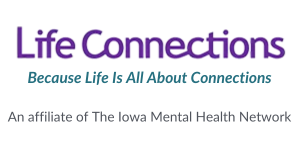Have you heard of the phrase ‘Toxic Positivity’?
It is the idea of taking positive thinking to the extreme by completely rejecting negative and difficult emotions and forcing only positive ones; it is the belief that you should always think positively about every experience. When pushed to engage in this practice by oneself or others, often due to discomfort with negative feelings, it diminishes our emotional experience.
The basic idea of positive thinking is related to having higher self-esteem and lower anxiety and depression levels, allowing for the ability to be flexible with emotions while having a generally optimistic outlook. Toxic positivity, however, negates the challenges that an individual is going through and demands positive feelings and thoughts.
Examples of this include:
- Being told: “It could have been worse,” following a traumatic experience.
- Hearing the words: “Everything happens for a reason,” following the death of a loved one.
- And, literally any time a sentence starts with “at least”.
These examples send the message for you to be thankful for what you have and compare your individual trauma with those who “have it worse.” And, when an individual ignores negative emotions that they experience, they often make the feelings bigger.
From a Biological Perspective
Your body and brain are designed to work together using a pathway of nerves that release a variety of hormones when you experience feelings. When you experience stressful situations and difficult feelings, your body releases cortisol and adrenaline. This causes you to have symptoms such as an increased heart rate, increased breathing, and blood vessels in your body to open up to increase blood flow. It is designed to help you respond to stressful events and help you make choices that feel safe. When we suppress these very real emotional responses, cortisol and adrenaline can build up inside of our bodies, leading to things like anxiety, depression, and physical illness.
Toxic positivity creates this response in your body and brain by disregarding very real emotions which can lead to bigger reactions the next time you experience a difficult situation. This is a result of your body already having cortisol and adrenaline circling through your body.
How Do We Stop This Cycle?
- It is important to change the way in which we think about feelings. Feelings are not “good” or “bad;” they are there to tell us something about experiences, and to help us make decisions.
- Learn to identify and name the feelings that you are experiencing.
- Find a safe space to talk about difficult feelings with trusted individuals in your life.
- Fourth, avoid using toxic positivity with others, it is okay to sit with another person’s discomfort and listen. And lastly, validate the person’s experiences and feelings when they share; sometimes hearing the words, “I can see that this is very hard for you,” is all that they need to hear.
Jada Mathison, MS, tLMHC
School-Based Therapist
Because Life is All About Connections
Life Connections provides in-home Behavioral Health Intervention services, Therapy services, autism (ABA) services and Children’s Mental Health waiver services in our 13 office locations and approved schools across Iowa. Life Connections was founded in March of 2009 with the intent to serve the children and families of Cedar Rapids and surrounding cities.
Life Connections is a highly professional and caring counseling and behavioral health provider. We offer a wide array of services to treat mental health issues including Applied Behavior Analysis Services, Behavioral Health Intervention Services, mental health therapy, school-based therapy programs, and substance use treatment.
For more information, please call 319-409-6922.
Resources:
- National Suicide Prevention Hotline 800-273-8255
- Crisis Text line text to 741741
- The Trevor Project – for LGBTQ+ young adult community 866-488-7386
- Rape, Abuse, and Incest National Network 800-656-4673
Start Your Services
Start Mental & Behavioral Health Services with Life Connections | Because life is all about connections.

